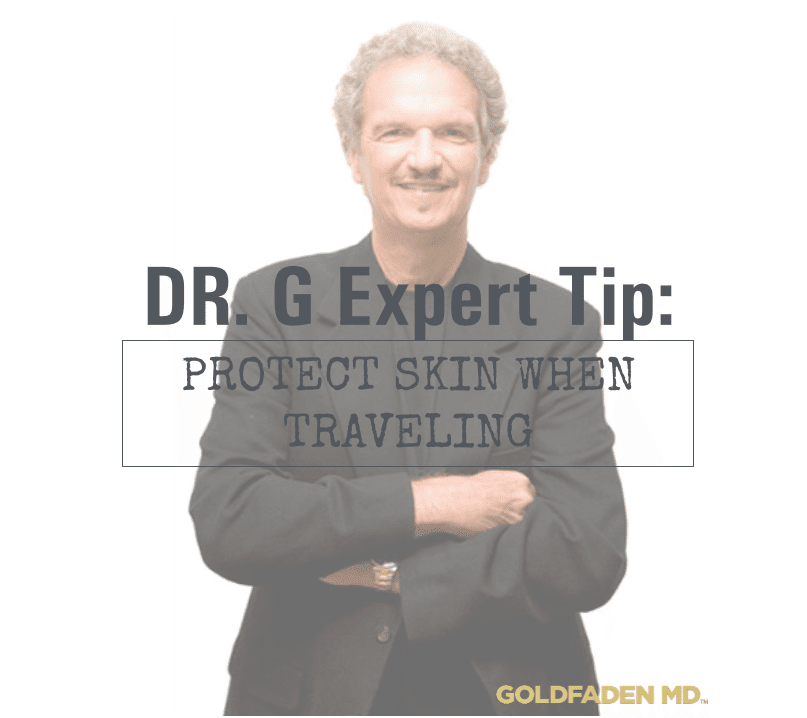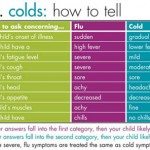 Traveling to a new place by plane, train or car, can present our senses and skin with a whole host of adjustment triggers, so we sat down with Dr. Goldfaden and enlisted his expertise to talk about how we can keep breakouts, dehydration and dullness at bay all while showing up in our final destination ready to charge forward!
Traveling to a new place by plane, train or car, can present our senses and skin with a whole host of adjustment triggers, so we sat down with Dr. Goldfaden and enlisted his expertise to talk about how we can keep breakouts, dehydration and dullness at bay all while showing up in our final destination ready to charge forward!
How does flying take a toll on your skin?
“Flying dehydrates skin which can cause dryness and possible breakouts. When skin gets dehydrated excess oil is produced to compensate and this can result in breakouts a few days after your flight.” Dermatologist, Dr. Gary Goldfaden MD
What measures can you take in the air to keep it moist and hydrated? Should you bring a spray, drink lots of water, continue to moisturize? Steer clear of alcohol?
“Drinking water is always important but start hydrating a few days before, just drinking water during the flight is not going to do much. Before flying wash your face with a gentle cleanser that is alcohol-free and then seal it with a hydrating serum. Then apply an oil or very hydrating moisturizer. Wearing foundation is not the best idea but if you must try and use a light weight one or tinted moisturizer. Drinking alcohol on a plane or on the ground will absolutely dehydrate you and your skin-so steer clear in the air!” Dermatologist, Dr. Gary Goldfaden MD
If you’re headed to a tropical locale with a hot, humid climate – how can that affect your skin? Cause breakouts, rashes, excessive oil production? What can you do to keep it calm?
“Hot humid climates can cause skin to go a little crazy at first. Think about what types of products you are packing. Steer clear of heavy moisturizers, retinols or peels while there or at least until your skin gets comfortable with the climate. If using an oil make sure it is a balancing oil-nothing too heavy. Do not do a peel or use retinol products the night before you leave. Sometimes is is nice to let your skin breathe a little. Try just wearing an oil free serum instead of a moisturizer and see how it feels. If you feel dry then use a light weight moisturizer. It is important to listen to your skin. If you tend to get flushed from heat and humidity cool compresses work great or a misting water. Always wear an SPF, look for a light weight dry mist that contains soothing ingredients such as Organic Red Tea.” Dermatologist, Dr. Gary Goldfaden MD
What about a very dry, desert climate? What effects can that have on your skin? How can you treat it and take precautions?
“A dry, dessert climate will dry your skin out quickly. Make sure to hydrate your skin with a serum and moisturizer. These types of climates can be windy, so be cautious not to get a wind burn. If you are outside for long periods of time cover your face with a light weight cloth and of course wear an SPF.” Dermatologist, Dr. Gary Goldfaden MD
What about high altitudes?
“High altitude climates can be very harsh on the body and the skin. Due to the location to the sun (you are closer to it) UVA rays are much stronger. Sun burn is more common as well as wind burn. If you know anyone who lives in a ski town you have seen what sun damage and high altitude can do to the skin-think leather baseball mit…..Always hydrate the skin by using extra layers of hydrating serums and moisturizers/oils.” Dermatologist, Dr. Gary Goldfaden MD
What about supplements and our diet in general? How can those help?
“Regular intake of Vitamins and a healthy diet contributes to overall health and prevents your body from being sick and run down, especially when traveling. Clear and glowing skin starts from the inside. Eating foods rich in Omega-3 fatty acids, the most beneficial is Salmon, can greatly reduce inflammation, reduce dryness and increase circulation – a key attribute to healthy, youthful-looking skin. Daily consumption of vitamins specifically my favorite vitamin – Vitamin D and an overall multi-vitamin and Omega-3 greatly impacts your overall health.” Dermatologist Dr. Gary Goldfaden MD


